Welcome to the Portugal portal
Lisbon , the capital of Portugal, overlooking the Tagus riverFlag of Portugal Location of Portugal in Europe Portugal Portuguese Republic , is a country located on the Iberian Peninsula , in Southwestern Europe , and whose territory also includes the Macaronesian archipelagos of the Azores and Madeira . It features the westernmost point in continental Europe , its mainland west and south border with the North Atlantic Ocean and in the north and east, the Portugal-Spain border constitutes the longest uninterrupted border-line in the European Union . Its archipelagos form two autonomous regions with their own regional governments . On the mainland, Alentejo region occupies the biggest area but is one of the least densely populated regions of Europe. Lisbon is the capital and largest city by population , being also the main spot for tourists alongside Porto and Algarve .
One of the oldest countries in Europe, its territory has been continuously settled and fought over since prehistoric times . The territory was inhabited by the Celtic and Iberian peoples, such as the Lusitanians , the Gallaecians , the Celtici , Turduli , and the Conii . These peoples had some commercial and cultural contact with Phoenicians , ancient Greeks and Carthaginians . It was later ruled by the Romans , followed by the invasions of Germanic peoples together with the Alans , and later the Moors , who were eventually expelled during the Reconquista . First founded as a county within the Kingdom of León in 868, Portugal formally became an independent kingdom with the Treaty of Zamora in 1143.
During the 15th and 16th centuries Portugal led the Age of Discovery and established one of the longest-lived maritime and commercial empires , becoming one of the main economic and political powers of the time. By the early 19th century, events such as the 1755 Lisbon earthquake , the country's occupation during the Napoleonic Wars , and the resulting independence of Brazil in 1822 led to a marked decay of Portugal's prior opulence . This was followed by the civil war between liberal constitutionalists and conservative absolutists over royal succession from 1828 to 1834. The 1910 revolution deposed Portugal's monarchy, and established the democratic but unstable Portuguese First Republic , later superseded by the authoritarian regimes of Ditadura Nacional Estado Novo Democracy was restored after the Carnation Revolution (1974), ending the Portuguese Colonial War and eventually losing its remaining colonial possessions. (Full article...
This is a Featured article , which represents some of the best content on English Wikipedia. Dom Pedro I first ruler of the Empire of Brazil , where he was known as "the Liberator ". As King Dom Pedro IV , he reigned briefly over Portugal , where he also became known as "the Liberator" as well as "the Soldier King ". Born in Lisbon , Pedro I was the fourth child of King Dom John VI of Portugal and Queen Carlota Joaquina , and thus a member of the House of Braganza . When the country was invaded by French troops in 1807, he and his family fled to Portugal's largest and wealthiest colony, Brazil.
The outbreak of the
Liberal Revolution of 1820 in Lisbon compelled Pedro I's father to return to Portugal in April 1821, leaving him to rule Brazil as regent. He had to deal with challenges from revolutionaries and insubordination by Portuguese troops, all of which he subdued. The Portuguese government's threat to revoke the political autonomy that Brazil had enjoyed since 1808 was met with widespread discontent in Brazil. Pedro I chose the Brazilian side and declared
Brazil's independence from Portugal on 7 September 1822. On 12 October, he was acclaimed Brazilian emperor and by March 1824 had defeated all armies loyal to Portugal. A few months later, Pedro I crushed the short-lived
Confederation of the Equator , a failed secession attempt by provincial rebels in Brazil's
northeast . (
Full article... )
List of Featured articles
General images
The following are images from various Portugal-related articles on Wikipedia.
Image 2 Portuguese colonies in Africa by the time of the Colonial War. (from
History of Portugal )
Image 3 Portuguese discoveries and explorations: first arrival places and dates; main Portuguese
spice trade routes in the
Indian Ocean (blue); territories of the
Portuguese Empire under
King John III rule (1521–1557) (green). The
disputed discovery of Australia is not shown. (from
History of Portugal )
Image 4 Aroeira 3 skull of 400,000 year old
Homo heidelbergensis .
The oldest trace of human history in Portugal. (from
History of Portugal )
Image 5 Typical Portuguese filigree heart shaped pendant, an iconic item in Portuguese fashion and design. (from
Culture of Portugal )
Image 7 The frontispiece of the 1826 Portuguese Constitution featuring King-Emperor
Pedro IV and his daughter Queen
Maria II (from
History of Portugal )
Image 8 Mértola 's
former mosque was transformed into a church in 1238. (from
History of Portugal )
Image 9 Dolmen of Cerqueira,
Sever do Vouga (from
History of Portugal )
Image 10 John IV of Portugal (from
History of Portugal )
Image 11 A bride and her groom in the carnival of Lazarim, Portugal (from
Culture of Portugal )
Image 12 Map of Spain and Portugal showing the conquest of Hispania from 220 B.C. to 19 B.C. and provincial borders. It is based on other maps; the territorial advances and provincial borders are illustrative. (from
History of Portugal )
Image 13 Visigothic kingdom in Iberia from 625 to 711 (from
History of Portugal )
Image 14 Most of Portugal and Spain as
Caliphate of Córdoba circa 929 to 1031. (from
History of Portugal )
Image 15 Gil Vicente , 16th-century Portuguese
playwright (from
Culture of Portugal )
Image 16 The arrival of the Portuguese in Japan, the first Europeans to reach it, initiating the
Nanban ("southern barbarian") period of active commercial and cultural exchange between Japan and the West. (from
History of Portugal )
Image 17 "Levantamento do mastro" in Fonte Arcada, Portugal (from
Culture of Portugal )
Image 18 Megalithic spirals,
cromlech near
Évora (from
History of Portugal )
Image 19 The Roman Provinces
Lusitania and
Gallaecia , after the reorganization of
Diocletian AD 298 (from
History of Portugal )
Image 20 Monument of Pelagius at Covadonga where he won the
Battle of Covadonga and initiated the Christian
Reconquista of
Iberia from the Islamic
Moors . (from
History of Portugal )
Image 21 Portuguese rejoice during the 1975 Carnation Revolution. (from
History of Portugal )
Image 23 Areas of the Roman province of Hispania occupied by the barbarian people c. 409-429 (from
History of Portugal )
Image 25 Vasco da Gama landing in
Kerala, India (from
History of Portugal )
Image 26 Flute player of Podence (from
Culture of Portugal )
Image 29 Example of Castræ round houses,
Citânia de Briteiros (from
History of Portugal )
Image 30 The neighborhood of
Parque das Nações , in Lisbon, where was held the
1998 World Exposition , is a symbol of the economic modernization and development of Portugal in the late 20th century. (from
History of Portugal )
Image 31 Gomes da Costa and his troops march victorious into Lisbon on 6 June 1926. (from
History of Portugal )
Image 34 Map of Brazil issued by
Portuguese explorers in 1519 (from
History of Portugal )
Image 35 Monarchist counter-revolutionary soldiers holding the
flag of the monarchy after the capture of
Porto in 1919. (from
History of Portugal )
Image 36 The main language areas in Iberia, circa 300 BC. (from
History of Portugal )
Image 38 Iberian Peninsula
c. 560.
Suebi territory with its capital in
Braga (blue);
Visigothic territory with its capital in
Toledo (green) (from
History of Portugal )
Image 39 This 1755 copper engraving shows the ruins of
Lisbon in flames and a
tsunami overwhelming the ships in the harbor. (from
History of Portugal )
Image 41 Rooster of Barcelos , the iconic Portuguese souvenir (from
Culture of Portugal )
Image 42 Caretos in the carnival of Podence, Portugal (from
Culture of Portugal )
Image 43 Maios celebration in Madeira island
[1] (from
Culture of Portugal )
Image 44 Caliphate disintegrated into small
Taifas kingdoms in 1031. (from
History of Portugal )
Image 46 Carnival parade in
Loulé ,
Algarve region. (from
Culture of Portugal )
Image 47 Natural cork bags. (from
Culture of Portugal )
Image 48 "
Festa da Coca " during the
Corpus Christi celebration, in
Monção , Portugal (from
Culture of Portugal )
"
Oh salted sea, how much of thy salt are tears of Portugal? "
Ó mar salgado quanto do teu sal são lágrimas de Portugal
Fernando Pessoa , poet
This is a Good article , an article that meets a core set of high editorial standards. Vasco da Gama was an
ironclad of the
Portuguese Navy built in the 1870s by the
Thames Iron Works in
London . Ordered to strengthen the defenses of the Portuguese capital of
Lisbon ,
Vasco da Gama was
launched in 1875 and completed in 1878. She served as the
flagship of the Portuguese fleet for the majority of her long and peaceful career. She was rebuilt and heavily modernized between 1901 and 1903. Her crew was involved in revolts in 1913 and 1914; during the latter event, they bombarded Lisbon and killed around one hundred people. Long-since obsolete by the 1930s,
Vasco da Gama was finally sold for scrapping in 1935. (
Full article... )
Maria do Carmo Miranda da Cunha GCIH , OMC Carmen Miranda Portuguese pronunciation: [ˈkaʁmẽj miˈɾɐ̃dɐ] fruit hat outfit that she wore in her American films.
As a young woman, Miranda designed clothes and hats in a boutique before making her debut as a singer, recording with composer Josué de Barros in 1929. Miranda's 1930 recording of "Taí (Pra Você Gostar de Mim)", written by Joubert de Carvalho, catapulted her to stardom in Brazil as the foremost interpreter of
samba . (
Full article... )
List of selected biographies
Portugal topics
Portugal lists
Biology
Culture
Economy
Education
Geography
People
Politics
Religion
Subcategories
Category puzzle Select [►] to view subcategories
Recognized content
Featured articles Former featured articles Featured lists Former featured lists Good articles Former good articles Did you know? articlesFeatured pictures
Alcobaça October 2021-1
Anémona de mar común (Anemonia viridis), Parque natural de la Arrábida, Portugal, 2020-07-21, DD 07
Anémona incrustante amarilla (Parazoanthus axinellae), Parque natural de la Arrábida, Portugal, 2022-07-20, DD 49
Argiope July 2012-3
Azulejos Parque Eduardo VII-2
Batalha September 2021-2
Campilhas March 2015-1a
Carmen Miranda in That Night in Rio (1941)
CastleSaintGeorge
Dragonfly Porto Covo August 2021-4
Erizo de mar violáceo (Sphaerechinus granularis), Madeira, Portugal, 2019-05-31, DD 40
Espirógrafo (Bispira volutacornis), Parque natural de la Arrábida, Portugal, 2020-07-23, DD 43
Espirógrafo (Sabella spallanzanii), Parque natural de la Arrábida, Portugal, 2020-07-23, DD 70
Estrella roja del Mediterráneo (Echinaster sepositus), Parque natural de la Arrábida, Portugal, 2020-07-31, DD 79
Gusano de fuego (Hermodice carunculata), Madeira, Portugal, 2019-05-31, DD 45
Iberian Peninsula antique map
Iglesia de San Ildefonso, Oporto, Portugal, 2012-05-09, DD 01
Lagoa do Capitão com montanha do pico
Lang's short tail blue (Leptotes pirithous) male underside
LuzLissabon
Maria I, Queen of Portugal - Giuseppe Troni, atribuído (Turim, 1739-Lisboa, 1810) - Google Cultural Institute
Maria Isabel of Portugal in front of the Prado in 1829 by Bernardo López y piquer
POR-4-Imperial Treasury-2400 Reis (1798-99)
Pez ballesta (Balistes capriscus), Parque natural de la Arrábida, Portugal, 2020-07-23, DD 24
Porto Covo pano April 2009-4
Porto3flat-cc-contr-oliv1002 edit2
Portugal 1729 8 Escudos
Puente Don Luis I, Oporto, Portugal, 2012-05-09, DD 13
Salmonete de fango (Mullus barbatus), Parque natural de la Arrábida, Portugal, 2020-07-21, DD 59
Sepia común (Sepia officinalis), Parque natural de la Arrábida, Portugal, 2020-07-21, DD 62
Sintra Portugal Palácio da Pena-01
Sunset 2007-1
Torre Belém April 2009-4a
Former featured portals In the News articles Main page featured articles Picture of the day pictures
Alcobaça October 2021-1
Anémona de mar común (Anemonia viridis), Parque natural de la Arrábida, Portugal, 2020-07-21, DD 07
Argiope July 2012-3
Azulejos Parque Eduardo VII-2
Batalha September 2021-2
Campilhas March 2015-1a
CastleSaintGeorge
Dragonfly Porto Covo August 2021-4
Erizo de mar violáceo (Sphaerechinus granularis), Madeira, Portugal, 2019-05-31, DD 40
Espirógrafo (Bispira volutacornis), Parque natural de la Arrábida, Portugal, 2020-07-23, DD 43
Espirógrafo (Sabella spallanzanii), Parque natural de la Arrábida, Portugal, 2020-07-23, DD 70
Estrella roja del Mediterráneo (Echinaster sepositus), Parque natural de la Arrábida, Portugal, 2020-07-31, DD 79
Gusano de fuego (Hermodice carunculata), Madeira, Portugal, 2019-05-31, DD 45
Iberian Peninsula antique map
Iglesia de San Ildefonso, Oporto, Portugal, 2012-05-09, DD 01
Lagoa do Capitão com montanha do pico
Lang's short tail blue (Leptotes pirithous) male underside
LuzLissabon
Maria I, Queen of Portugal - Giuseppe Troni, atribuído (Turim, 1739-Lisboa, 1810) - Google Cultural Institute
Maria Isabel of Portugal in front of the Prado in 1829 by Bernardo López y piquer
POR-4-Imperial Treasury-2400 Reis (1798-99)
Pez ballesta (Balistes capriscus), Parque natural de la Arrábida, Portugal, 2020-07-23, DD 24
Porto Covo pano April 2009-4
Porto3flat-cc-contr-oliv1002 edit2
Portugal 1729 8 Escudos
Puente Don Luis I, Oporto, Portugal, 2012-05-09, DD 13
Salmonete de fango (Mullus barbatus), Parque natural de la Arrábida, Portugal, 2020-07-21, DD 59
Sepia común (Sepia officinalis), Parque natural de la Arrábida, Portugal, 2020-07-21, DD 62
Sintra Portugal Palácio da Pena-01
Sunset 2007-1
Torre Belém April 2009-4a
Featured topics
New articles
Things you can do
Here are some tasks awaiting attention:
Associated Wikimedia
The following Wikimedia Foundation sister projects provide more on this subject:
Commons
Wikibooks
Wikidata
Wikinews
Wikiquote
Wikisource
Wikiversity
Wikivoyage
Wiktionary
Purge server cache




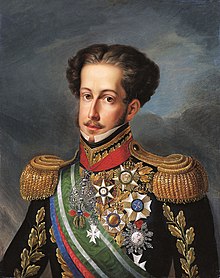

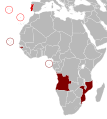










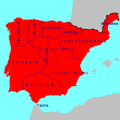
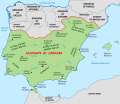
























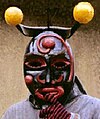


![Image 43Maios celebration in Madeira island [1] (from Culture of Portugal)](https://upload.wikimedia.org/wikipedia/commons/thumb/e/e1/2011-03-05_03-13_Madeira_045_Santana_%285543431418%29.jpg/120px-2011-03-05_03-13_Madeira_045_Santana_%285543431418%29.jpg)

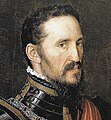




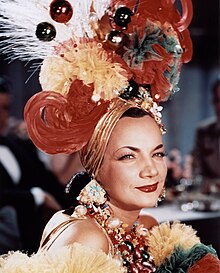
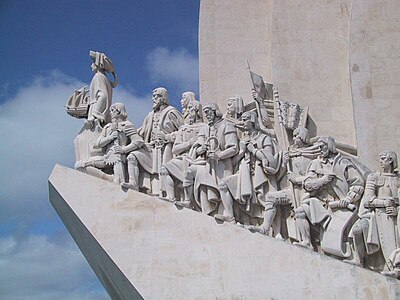


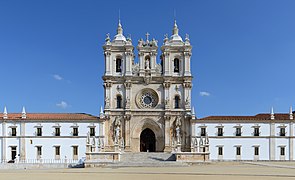

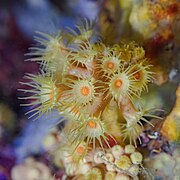




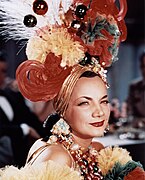

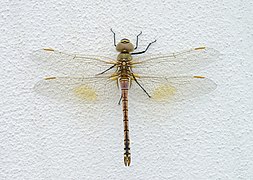
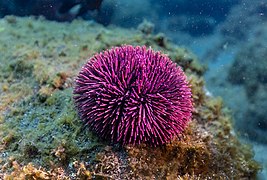
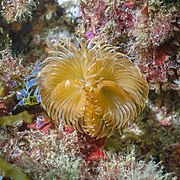
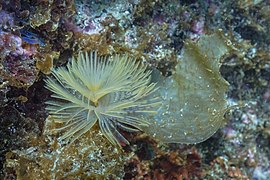
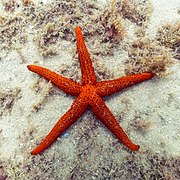


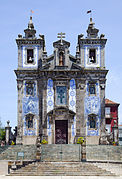
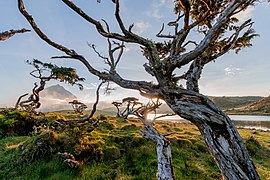


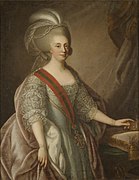
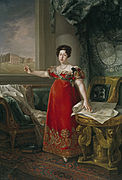

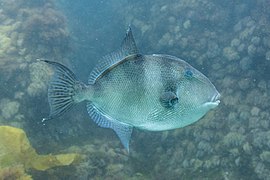
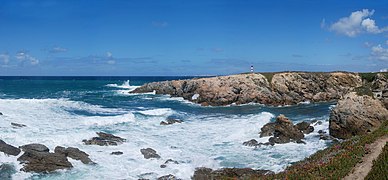

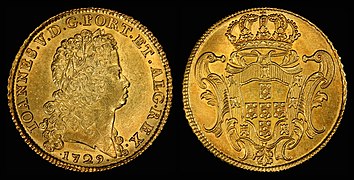


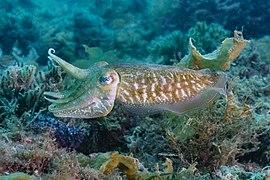
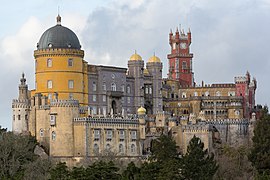
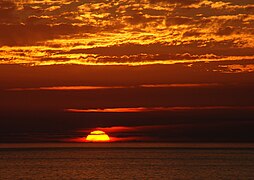
























Recent Comments